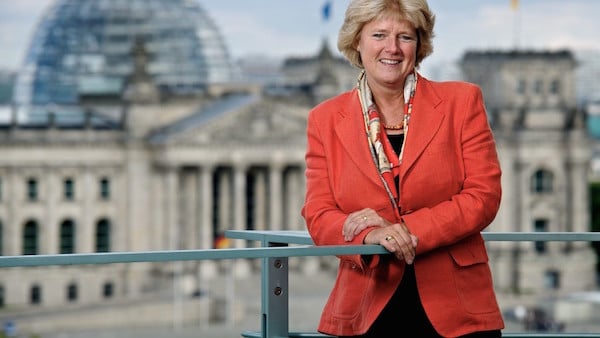
The German legal framework has hindered art trade.
Photo: Wallcoo
The federal cabinet of the German government approved the highly controversial draft law for the proposed amendment to the country’s cultural protection legislation on Wednesday.
The cabinet’s approval marks the first step towards the ratification of the law, which now goes to the German parliament for further deliberation, Art Magazin reported.
“With the amendment of the cultural protection legislation we are adopting one of the most important pieces of cultural politics of this legislature,” Culture Minister Monika Grütters announced.
She explained that it was her responsibility to protect nationally valuable cultural artifacts from being exported out of the country.
Culture Minister Monika Grütters has encountered fierce resistance from Germany’s art professionals.
Photo: Charles Yunck via BZ-Berlin
However, gallerists, collectors, and artists have voiced fierce opposition to the government’s plans arguing that the law will introduce further obstacles into the already lagging German art market, and some even compared the proposed amendment to expropriation.
The law seeks to tighten export regulations so that all artworks traveling within the EU require an export permit if the works are older than 70 years and valued over €300,000 ($326,000).
“Ultimately it comes down to very few unique, culturally self asserting and identity forming major artworks that are classified as nationally valuable,” Grütters insisted in an open letter on the culture ministry’s website in September. “It amounts to a negligibly small part of the overall artistic and cultural heritage in Germany.”
But her words did little to appease Germany’s art professionals. The latest German art world figure to criticize the amendment was gallerist Michael Werner, who accused the German state of using the controversial legislation as a way to generate revenue from the cultural industry.
Georg Baselitz and Gerhard Richter spoke out against the proposed amendment.
Photo: Focus
The impact of the proposed law is already being felt in museums, too. According to reports by Art Magazin, it has emerged that August Macke‘s heirs are consigning five major works to auction in a bid to sell them before the law is passed. Kunsthaus Lempertz, the auction house selling the artworks, has indicated that the family initially wanted to donate the works to a museum.
In July, German star artist Georg Baselitz withdrew all loans from German museums, while Gerhard Richter threatened to do the same.
Meanwhile, German billionaire and mega-collector Hasso Plattner threatened to withdraw his pledge to bequeath his private collection to Potsdam’s Barberini Museum if the government passes the legislation.
Grütters hopes that, pending parliament approval, the bill will be put into effect at the beginning of 2016.